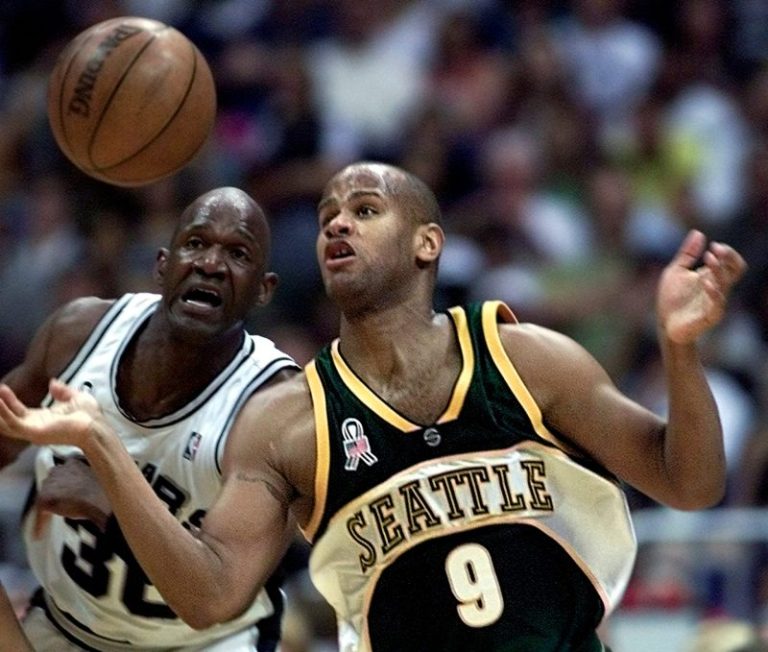Randy Livingston, who struggled with a gambling problem, believes more scandals will emerge until conversations about addiction are normalized.
The investigation led to the indictment of a head coach, a current player, and a former player.
Livingston now works as a ‘Responsible Gaming Ambassador’ and has spoken to NBA rookies about the risks.
A former NBA player who says he struggled with a gambling problem during his 11-year career in the league told USA TODAY Sports he is ‘not surprised at all’ that a federal investigation led to the arrest of an NBA head coach, a current NBA player and former NBA player.
‘In the last three, four years, I’ve been saying the possibility of scandal was very high,’ Randy Livingston told USA TODAY Sports on Friday, Oct. 24. ‘It doesn’t matter if it’s college football, college basketball, pro basketball, pro football.
‘ … I would think this is not going to stop. There’ll be more and more until we start to make the conversations normal.’
Livingston, 50, has said he never bet on sports and he primarily gambled on cards and in casinos. After getting sober in 2017, Livingston said, he began speaking out publicly and heard from other NBA players seeking help for gambling problems.
He also said people reached out after the explosive news that Portland Trail Blazers coach Chauncey Billups, Miami Heat guard Terry Rozier and former NBA player Damon Jones had been indicted stemming from an FBI investigation into illegal gambling.
Livingston, a former point guard who played in the NBA from 1996-2007, is a ‘Responsible Gaming Ambassador’ with FanDuel, which runs an online sports book. He said he talked to the NBA’s rookie classes the last two years.
Noting the first stop for rookies is summer league basketball in Las Vegas, Livingston said, ‘Gambling, prostitution, I mean all the things. So there’s some things that I think could change, but just we got to bring awareness and just make sure people are educated and understand the risk involved.’
He said he thinks his talking to the rookies ‘was a step in the right direction. But obviously we got a long ways to go with it.
‘The more we start to normalize the conversation and the more we bring awareness, and … help people understand this addiction and warning signs and how to get help if you’re in the addiction, those things are truly important.’

